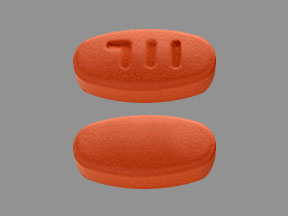Mesalamine Disease Interactions
There are 2 disease interactions with mesalamine.
Mesalamine (applies to mesalamine) liver dysfunction
Moderate Potential Hazard, Moderate plausibility. Applicable conditions: Liver Disease
The use of mesalamine and other compounds which contain or are converted to mesalamine has been associated with hepatic adverse effects, including hepatic failure. Therapy with mesalamine and prodrugs of mesalamine should be administered cautiously in patients with impaired hepatic function or a history of liver disease. Liver function should be evaluated prior to initiation of therapy and periodically during therapy.
Mesalamine (applies to mesalamine) renal dysfunction
Moderate Potential Hazard, Moderate plausibility.
The use of mesalamine and other compounds which contain or are converted to mesalamine has rarely been associated with renal adverse effects, including minimal change nephropathy, acute and chronic interstitial nephritis, and nephrogenic diabetes insipidus. Renal lesions such as renal infarct, papillary necrosis, tubular necrosis and interstitial fibrosis have been reported in high-dose animal studies. Therapy with mesalamine and prodrugs of mesalamine should be administered cautiously in patients with impaired renal function or a history of renal disease. Renal function should be evaluated prior to initiation of therapy and periodically during therapy.
Switch to professional interaction data
Mesalamine drug interactions
There are 124 drug interactions with mesalamine.
More about mesalamine
- mesalamine consumer information
- Check interactions
- Compare alternatives
- Pricing & coupons
- Reviews (426)
- Drug images
- Side effects
- Dosage information
- During pregnancy
- Drug class: 5-aminosalicylates
- Breastfeeding
Related treatment guides
Drug Interaction Classification
| Highly clinically significant. Avoid combinations; the risk of the interaction outweighs the benefit. | |
| Moderately clinically significant. Usually avoid combinations; use it only under special circumstances. | |
| Minimally clinically significant. Minimize risk; assess risk and consider an alternative drug, take steps to circumvent the interaction risk and/or institute a monitoring plan. | |
| No interaction information available. |
See also:
Further information
Always consult your healthcare provider to ensure the information displayed on this page applies to your personal circumstances.


